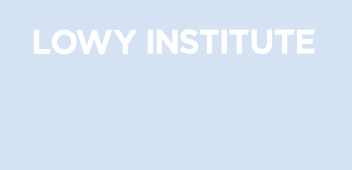Xi Jinping speeds China's ascent
China's leader is driving his country to match a declining America by 2035. That is only four or five Australian elections away. Originally published in the Australian Financial Review.

Nearly a year after it surfaced in Wuhan, the new coronavirus continues to roil the world. Europe is back in lockdown. America has all but succumbed to its spread. Australia, with a handful of cases, is only gingerly reopening.
Just one major country, China, where the virus started its spread on the back of government negligence and cover-ups, is accelerating into the post-COVID-19 world.
China’s policies over the half decade are being formally decided this week at a meeting in Beijing of the Central Committee, the 370-strong body that acts as the ruling Communist Party’s enlarged board of directors, albeit one that runs at the whim of its CEO, Xi Jinping.
Old communist habits die hard, which means all media are excluded from the hotel in west Beijing where the meetings are held and the delegates themselves locked in the venue until the conclusion.
Thanks to recent top-level pronouncements, however, we have a good sense of the broad strokes of the next five-year economic plan the delegates approved late on Thursday, though the granular detail won’t come until next year.
The plan, like much of Xi’s current agenda, is all about speeding up on multiple fronts.
The new economic policy, which goes by the clunky name of “dual circulation”, has two aims. The first is to drive faster growth through domestic consumption rather than investment and exports.
The second aim, with profound geo-political implications, is to wean China off any kind of reliance on foreign, and in particular, US technology, to limit Washington’s ability to pressure it.
China is not so much “de-coupling” as “de-Americanising”.
Internal politics in China make any backsliding from the pre-determined grand struggle against the West just about impossible.
China’s economy has already returned to growth this year, in contrast to the US. On current projections, that means China’s economy will surpass America’s economy in size earlier than expected, by about 2028.
China is speeding up its regional ambitions as well, notably around the self-governing island of Taiwan, which Beijing claims as Chinese territory. China’s military activity around Taiwan has sharply escalated in recent months, prompting Frances Adamson, the head of theDepartment of Foreign Affairs and Trade to say on Wednesday she was more concerned about a potential crisis “possibly at any time in the past three- and-a- half decades I've worked on this subject”.
Deng Xiaoping, China’s paramount leader for two decades from the late 1970s, once set a target date of 2050 for the country to achieve “modernisation”, or, put another way, to be on par with the US.
That timetable is being accelerated too.
Li Junru, a former deputy head of the Central Party School, the top training academy of senior officials, told the state media the target could now be reached 15 years earlier, by 2035.
In Australian terms, that is not far off. It’s about four to five federal elections away, or perhaps more balefully, the year in which the first of the country’s new submarines goes into service, as long as testing of the vessel passes muster on time in 2034.
Although claims of a vaccine for COVID-19 have to be taken with a grain of salt, senior Chinese leaders have been telling foreign visitors recently that they have already been personally vaccinated, in some cases, a number of times.
Beijing has gone through bouts of hubris over the last decade only to find that the US was a much more resilient.
If they are telling the truth, that is no small thing. Given the effort that goes into preserving the health of top party members in China, they must have great confidence in the vaccine to be using it on themselves.
The vaccine, in turn, will provide a platform for Chinese diplomacy to gain pace as well.
China’s overly belligerent reaction to any criticism of its initial handling of COVID-19 (and its subsequent so-called "mask diplomacy") has seen its standing in developed countries plummet.
Beijing may be able to do little to correct that. Internal politics in China make any backsliding from the pre-determined grand struggle against the West, and especially America, just about impossible, apart from tactical zig-zags here and there.
But the provision of a vaccine to developing countries such as Indonesia that are struggling to bring the virus to heel could be enormously beneficial to Beijing’s standing with governing elites and the population at large.
Xi, as head of the communist party and just about everything else in China, is driving Beijing’s ambition on all fronts. By the year’s end, he is looking stronger than ever, and the US, and its political system, weaker.
After struggling to manage an unpredictable Trump early in his first term, Beijing now sees him much more an agent and accelerant of a secular American decline.
They may be wrong. Beijing has gone through a few bouts of hubris over the last decade only to find that the US was a much more resilient and enduring power than they had thought.
Their frenetic pace on all fronts at the moment suggests that they think that this time will be different, no matter who wins in the US presidential election next week.
Richard McGregor is a senior fellow at the Lowy Institute in Sydney.


